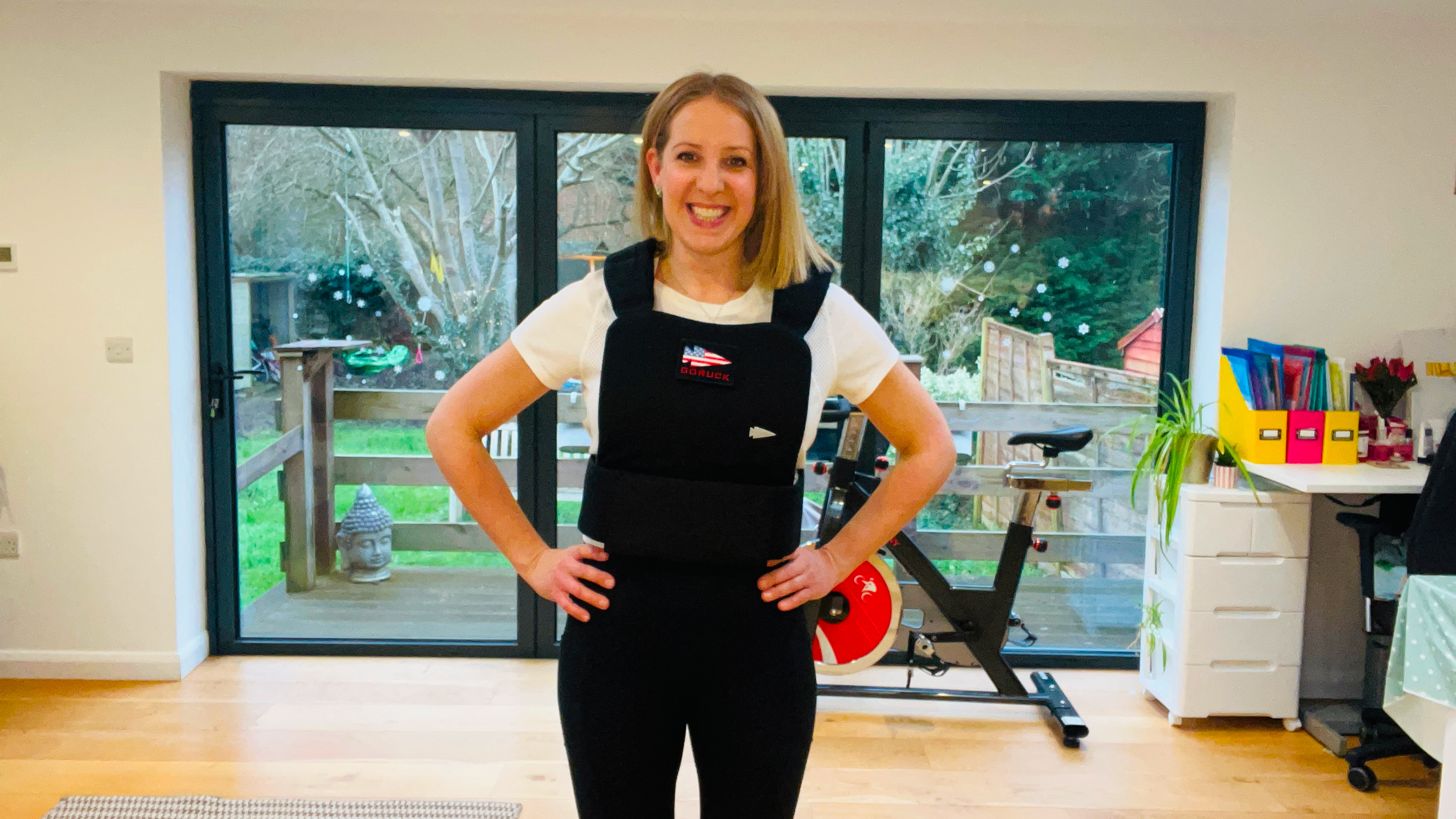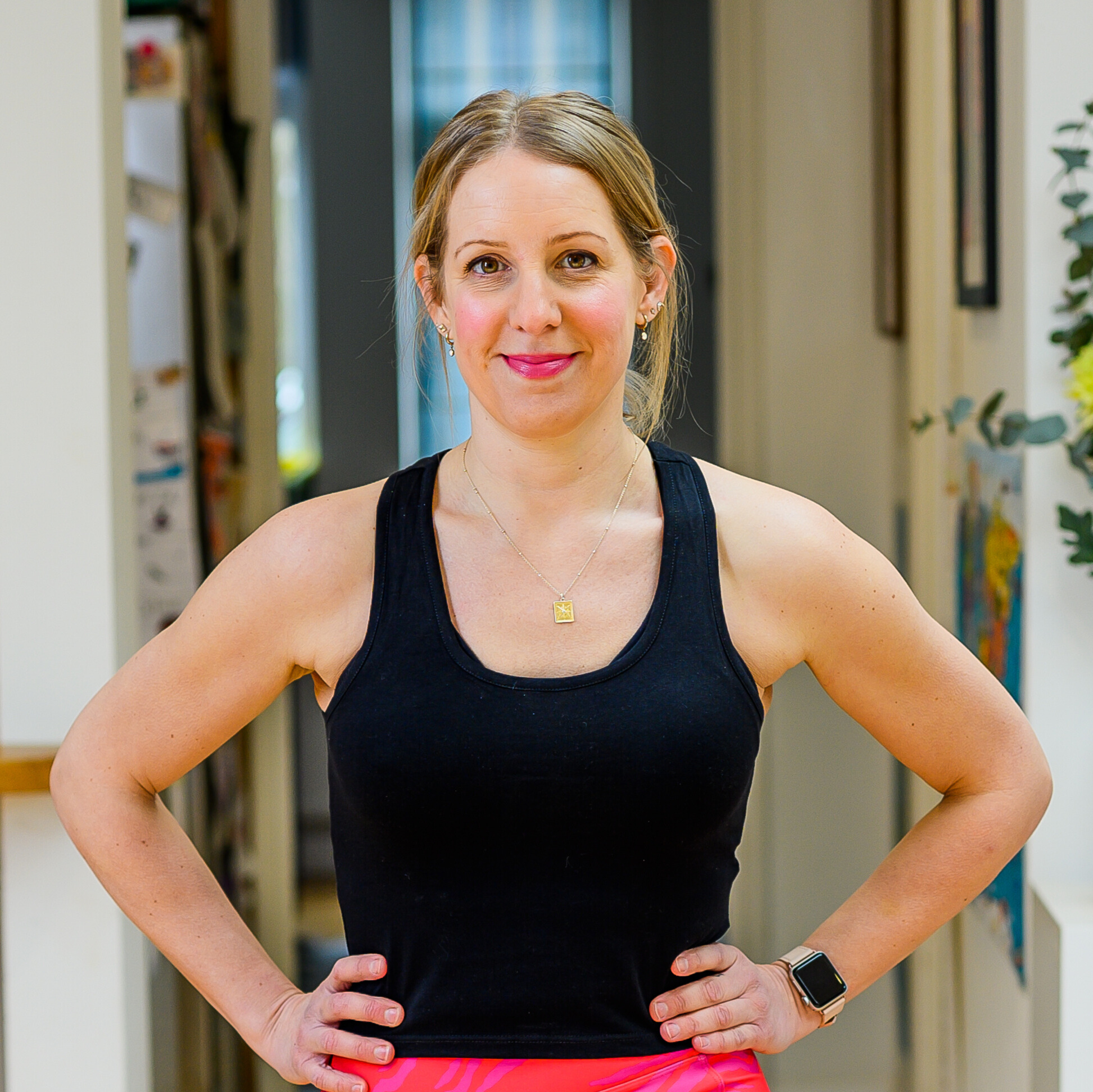I tried wearing a weighted vest for a month—here’s why I recommend it
Are weighted vests the most underrated fitness product?


I love a fitness challenge, so when I was offered the chance to test out a weighted vest I thought it would be a great way to start the new year.
As the name suggests, a weighted vest is a gilet-style top with pockets for weight plates or sandbags. It looks a bit like a bulletproof vest. Budget-friendly models tend to come with sand-filled pockets, while more high-end versions like the GORUCK training weight vest I tested have removable metal plates to adjust the weight of the vest. Mine came with two 4.5kg plates and I wore it during housework, in a HIIT class, and while walking and running.
My experience using a weighted vest for a month
I noticed that it really helps me engage my core, which can help improve posture and stability. Plus, I found that it’s an effective way to build strength and burn calories while I’m doing boring chores around the house. And those weren't the only benefits—here’s what else I discovered.
It’s a great way to level up your workouts
If you think HIIT is a great cardio workout, try doing it with a weighted vest! By introducing the extra weight it forces the body to work harder, burning more calories and improving your cardiovascular fitness. Let’s face it, you haven’t had a really sweaty workout until you’ve tried doing burpees in a weighted vest! Just make sure you start with the lightest plates you have and build up gradually.
It’s excellent for building bone density
Studies have shown that wearing a weighted vest during exercise can increase bone density I’m turning 47 this month so building thicker and stronger bones is a priority for me, because it’s in your 40s and beyond that bone mass naturally declines.
It’s an easy, hands-free way to add intensity
Wearing the weighted vest around the house when I was making dinner or putting away the laundry, or during an evening walk, made every step more challenging. I also wore the vest for planks, sit-ups and bear crawls to make my core strength training harder. It was a great way to make these exercises more effective without having to hold dumbbells, which can sometimes get in the way and make movement difficult.
Running with a weighted vest is total game changer
I’ve recently started running again (I’m doing the MNDA Run 31 Miles in January challenge) and, man, does it make things extra spicy when you add a weighted vest! I started gently by using one of the 4.5kg plates, and made sure I factored in a lot of stops and walking during my usual 5K run while I got used to the feel of the vest and the added weight. I’ve been strength training for years, but as running with a weighted vest was a first for me, I paid special attention to maintaining good form to avoid injury.
Start your week with achievable workout ideas, health tips and wellbeing advice in your inbox.
As you’d imagine, the vest really intensifies the workout but also you burn a ton more calories. And the best part? My first run without the vest felt like I was Sonic the Hedgehog! My speed had noticeably improved and I could run further, too.
Benefits of wearing a weighted vest
“Weighted vests provide a great way to progress your strength training days," Nichele Cihlar, director of training at GORUCK, told me. “It is a very effective way to add more weight to many exercises while keeping your hands free. It’s also an easy way to amplify your walks, which provide low-impact benefits.
“They can be used for a number of exercises including running, walking, core strength, cardio and more. However, the weight should be adjusted depending on the type of training. You can use a heavier weight during walking but the same weight might not be suggested for running as proper form and intensity will vary,” says Cihlar.
You can even wear your vest during pull-ups. “This is a great way to increase the difficulty for those that can already do bodyweight strict pull-ups. You’ll definitely feel the burn and see some serious strength gains,” says Cihlar.
And if you work from home and are struggling to squeeze in a training session, wearing a weighted vest for run-of-the-mill activities is a smart stopgap measure. “The best way to sneak in a low-impact workout if you’re short on time is throwing on a weighted vest and walking around the house, or simply wearing it during daily activities like when you’re on the phone, going up and down the stairs with laundry or even a walk to the store," says Cihlar.
If you are new to weighted vests, Cihlar recommends starting with a light plate and then scaling up as you become more comfortable. “It’s important not to begin with too much weight, as you can injure yourself.” GORUCK’s weight plates range from 10lbs to 45lbs.
Weighted vests are a great addition to your training kit, but Cihlar said they are not suitable for everyone. “Weight vests are generally safe, especially for walking," says Cihlar, "but if you are pregnant it would be uncomfortable as you get further into your pregnancy so I would not recommend it.
“As always, for expecting mothers and elderly, you should always talk to your physician first. I do not recommend weight vest training for children. They should learn how to properly move and do exercises with just their bodyweight first.”
Maddy Biddulph is a journalist specializing in fitness, health and wellbeing content, with 26 years in consumer media working as a writer and editor for some of the bestselling newspapers, magazines and websites in the US and UK, including Marie Claire, The Sunday Times and Women’s Health UK.
She is a CIMPSA-certified PT and works one-on-one with clients, as well as running Circuits Club classes which mixes cardio and strength training and chair-based exercise classes for seniors.
